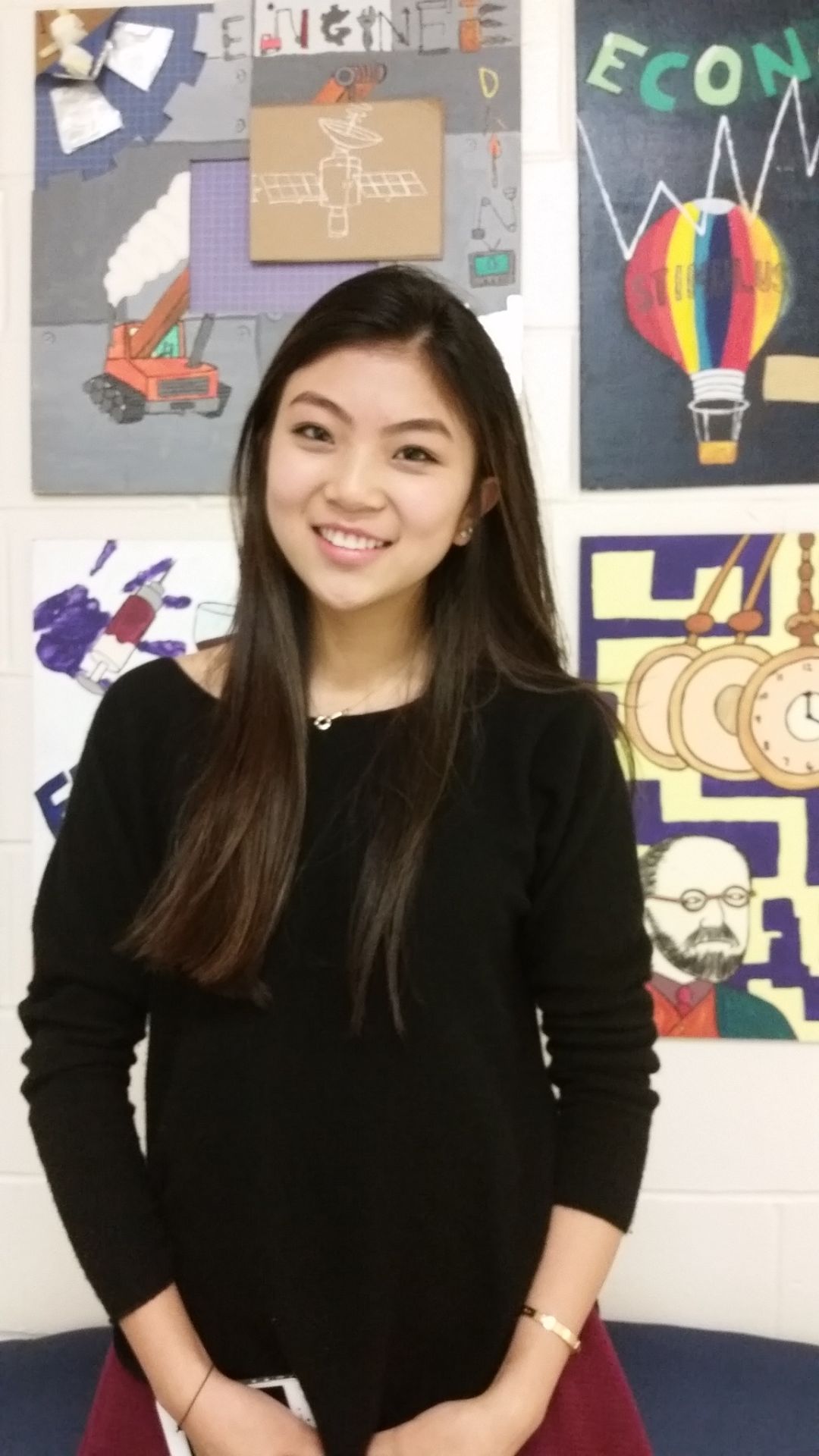When Roslyn High School senior Tiffany Sun jets to Washington D.C. in March to compete as a finalist in the 2015 Intel Science Talent Search, she won’t be asked to recite the findings of the research that got her there.
Instead, she will be judged on her ability to solve scientific problems posed by judges of varying academic disciplines.
“I think it’s definitely going to be challenging, but I’m going to try my best to prepare for it,” Sun said.
How?
“I guess I’ll just look at past questions they might have asked,” she said. “I have a passion for social science, and the questions they might ask would be in biology and chemistry and other subjects, so I’ll try to brush up on these topics and review a little bit.”
Sun last week was named one of 40 finalists from across the country in the annual competition, which awards more than $1.6 million in research awards.
The annual contest began more than 70 years ago.
Past winners include eight Nobel Laureates, five National Medals of Science winners, two Fields medalists and 12 MacArthur Foundation fellows.
Sun was one of four Roslyn students to be named semifinalists earlier this month, tied with Great Neck for the most by a Long Island school district – but she was the only contestant from northwestern Nassau County to reach the finals.
“It’s crazy,” she said. “I was not expecting it at all.”
Sun’s project, entitled “The effect of SES, Beauty and Disability in the Trolly Problem,” explored the role attractiveness, economic status and disability play in one’s approach to an ethical thought experiment in which one determines whether to rescue five people tied to train tracks by diverting an oncoming trolley to another track with someone else tied to it.
In her experiment, participants would decide on who to save based on whether the person tied to the alternate track – whom Sun presented as female in each exercise – was attractive, in favorable economic standing or in sound physical health.
“It’s just always such a fabulous surprise to have a finalist,” said Allyson Weseley, the Roslyn School District’s director of secondary research.
“If I had to bet on these things, I’d be very, very poor,” she said. “One year, you think you have [a finalist] and you don’t, and then you think there’s no way you have one and you do. All our kids this year were great.”
As a finalist, Sun will compete in Washington from March 5-11 for three Medal of Distinction awards of $150,000, three $75,000 second-place awards and three $35,000 third-place awards.
All finalists receive at least $7,500.
But to take home the big money, Sun will have to demonstrate the scientific mind at work.
“[The questions will] sort of come out of nowhere, like could a fish breathe by swallowing water and then exhaling carbon dioxide, could a fish live on that,” Weseley said. “It’s not a realistic question you’re supposed to answer, but they want to see how a kid will think on a question asked out of left field. It becomes really about a whole different thing.”



